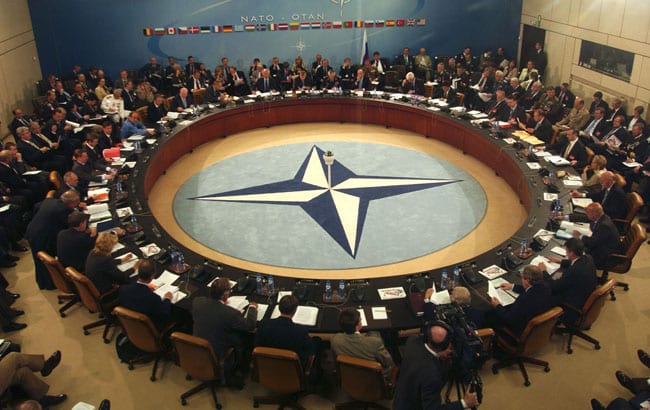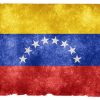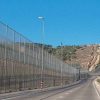
The announcement of NATO’s clinical death at the age of 65 has been premature. It is emerging from Afghanistan after a long war with uncertain results, but which has also seen history’s largest military coalition, comprising the 28 NATO allies and a further 22 States that have cooperated with them. The organisation was, once again, concerned about its future. It was not quite sure what to do and the preparations for the Summit in Wales in September began to consider possible future scenarios mainly focused on the defence against terrorism, cyber-attacks and missile proliferation. But the Crimean crisis between Ukraine and Russia has now led to its revival as a counterweight to Moscow. Or perhaps not?
Suddenly, the umbrella provided by NATO –in fact, by the US– has become essential for countries bordering on Russia such as the Baltics and Poland. Following the Russian occupation of Crimea, the latter requested a meeting of the North Atlantic Council at the ambassadorial level, invoking article 4 of the North Atlantic Treaty, according to which “the Parties will consult together whenever, in the opinion of any of them, the territorial integrity, political independence or security of any of the Parties is threatened”.
But the truth is that NATO –which is no longer the same organisation that it was in the Cold War– has ceased to be the framework for geopolitical debate in the West. It has been reduced to a military alliance or even a military tool box –with an undoubted capability for planning and organising military exercises–, of which the allies make selective use in case of need and if in agreement. And now the planning machinery has again been set in motion. However, no military planning for the defence of the Baltics had been carried out until the Georgia crisis in 2008. Planning will now be reinforced, but there is a big difference between military planning and military action, beyond some routine flights.
If Russian troops were to enter Latvia, for instance, article 5’s collective defence clause would be activated. But this will not occur if they enter the eastern Ukraine or other territories outside NATO. Nevertheless, NATO would be involved in the ‘costs and consequences’ of any Russian action, as pointed out by Nick Witney of the European Council on Foreign Relations. As regards deterrent value, in Brussels President Obama called for a stronger alliance whose members spend more on defence, which seems unlikely at a time of crisis and deflation, except in the case of a major catastrophe. Furthermore, as Stratfor’s George Friedman says, the unanimity necessary for NATO to act is absent, both among the allies and the members of the EU, and even among those geographically closest to Russia.
Obama seemed to be scolding the Europeans more than the Russians. Despite his tough language with Moscow, the Crimean crisis has caught the US at a time when it appears to be militarily distancing itself somewhat from Europe, in a state of self-absorption, withdrawal within itself and retrenchment. At most it is only pivoting towards Asia. Nevertheless, this does not mean that the giant will not awake again in Europe if Russian action escalates further.
But other than some routine and symbolic air patrols in the Baltic and reinforced AWACS activity in Poland and Romania, it has been the EU that has been at the helm and coordinated itself with Washington. Despite its limitations and military and political shortcomings, the geopolitical debate, political coordination and economic sanctions have been structured and coordinated with the US by the EU, which has emerged as a rival to NATO, although –with certain exceptions– it shares the same Member States. The EU –along with the US– has also taken a leading role because so far the West has only wanted to respond to Russia by using its soft power, with highly focused sanctions and certain long-term structural changes (eg, in its energy policy), but not with military force, although the situation is still highly fluid. Obama himself has said that ‘now is not the time for bluster. There are no easy answers or military solutions to the problem in Ukraine. We must meet the challenge with strength and conviction’.
The EU against Russia is a case of the postmodern against the modern, while NATO against Russia would be a clash of the modern, which would be far more dangerous. In addition, even in Syria, where a NATO member –Turkey– is directly affected, the organisation is still staying on the side-lines.
Following the Crimean secession, NATO’s outgoing Secretary General, Anders Fogh Rasmussen, has spoken of a ‘strengthened partnership’ with the Ukraine, to which a ‘Euro-Atlantic perspective’ must be opened. Few speak of expanding NATO to the rest of the Ukraine while Henry Kissinger, on behalf of the realists, has opposed any such move. It would lead to a much deeper crisis with Russia, with which communications are still open by way of the NATO-Russia Council at NATO headquarters in Brussels, while new diplomatic efforts are being made. In fact, in 2008 Putin flatly rejected George Bush’s suggestion of expanding NATO into the Ukraine and Georgia, a move also opposed by allies such as Germany and France. There is no consensus in NATO on enlargement and this raises the delicate question of the Ukraine’s neutrality or neutralisation.
An essential question is whether the Ukraine and Crimea crisis and what comes after will prevent NATO from developing its plans of becoming a much more global military alliance. This is something that Spain must consider carefully as its priorities are more North-South than East-West. Obama has described Russia as a ‘regional power’, which under current circumstances also regionalises NATO.
NATO is a bugbear to Putin and Russia would be ill-advised to make it stir. Ultimately, everything will depend on what Putin does. For the time being the EU has gained the upper hand over NATO. This has been a change for Europe, but news about NATO’s demise is premature. Old soldiers never die, they only fade away and, in NATO’s case even that is unlikely to happen. It will be around for some time yet, albeit with a more limited remit.


